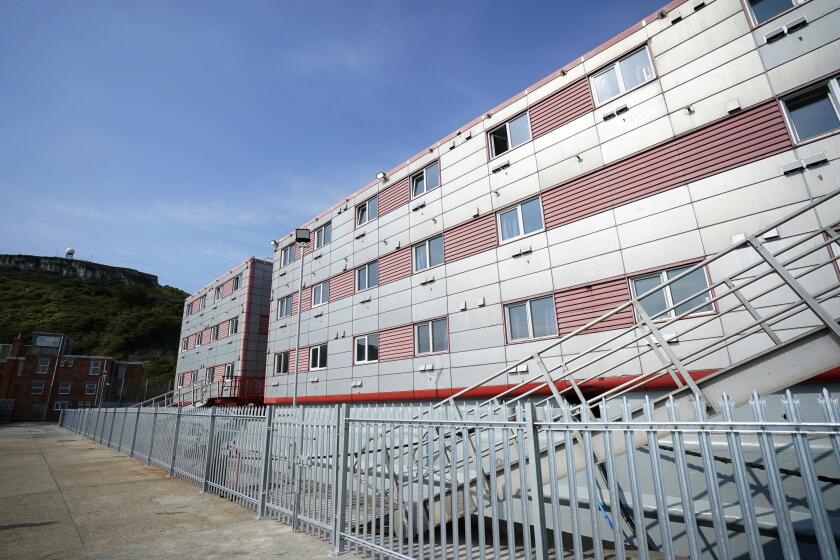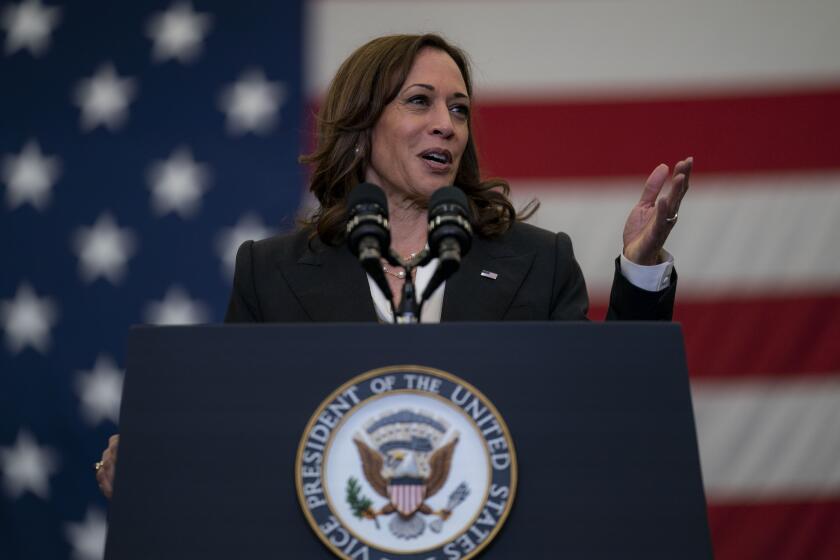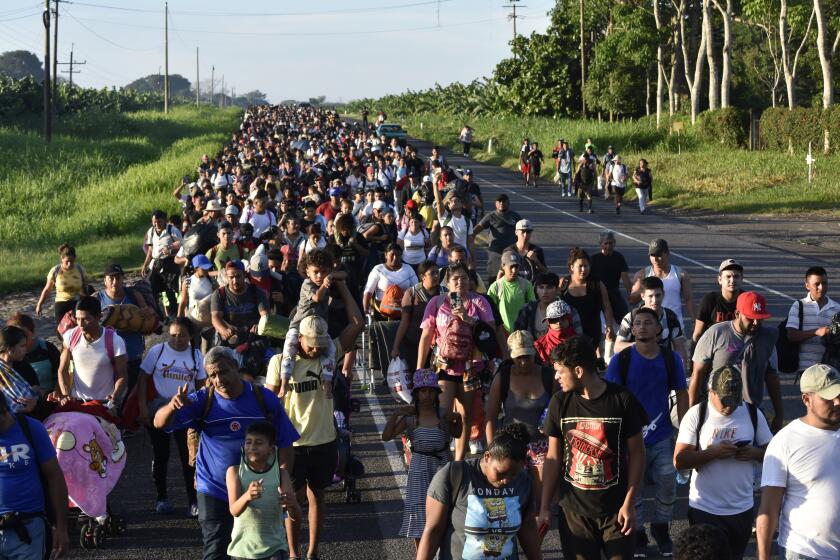House OKs Easing Deadline for Salvadoran Refugees : Immigration: The bill offers four more months for an estimated 50,000 residents of the war-torn country already in U.S. to get protected status.
The House voted Tuesday to extend by four months the deadline for Salvadoran immigrants to apply for temporary political asylum, a move that supporters say will attract up to 50,000 residents from the war-torn country in search of safe haven in the United States.
The legislation extends the deadline from June 30 to Oct. 31, for Salvadorans already living in the United States to apply for the protected status visa and to receive temporary work authorization.
The bill, approved by voice vote, now goes to the Senate where it is expected to pass. The Bush Administration has given qualified support to the measure but has signaled it will seek to shorten the four-month extension period when the bill is considered in the Senate.
Congress’ original intent was that the program be self-funding and the existing program fees “do not recover the costs of the program,” a White House policy statement said.
Congressional estimates place the cost of a four-month extension at up to $4 million in administrative costs to the Immigration and Naturalization Service, based on a maximum 75,000 additional applications.
“To the extent that fees do not recover the costs of the program, the INS will therefore be required to reduce funding for other immigration programs,” the White House said.
Nevertheless, supporters were pleased by the House vote.
“We are thrilled that the House supports a four-month extension,” said Frank Sharry, executive director of the National Immigration, Refugee and Citizenship Forum, an immigrant rights group that led the fight for the extension. “This humanitarian program will enable more than 30,000 to 50,000 Salvadorans to take advantage of the law.”
Landmark immigration legislation passed by Congress and signed by President Bush last year created a new immigration category--temporary protected status--for foreigners who flee their homelands because of armed conflict, natural disasters or other forms of turmoil that would endanger them if they returned.
The law, which went into effect Jan. 1, specifically made Salvadorans eligible for the protected status and eligible to receive work authorization for periods of up to 6 months until June 30, 1992.
To qualify for the program, however, they had to prove their nationality and demonstrate that they arrived in this country before Sept. 19, 1990. In addition, applicants were required to pay fees that covered the cost of administering the program.
Immigration and Naturalization Service officials in Washington said about 85,000 Salvadorans had applied for the program as of last week.
Immigration officials and Latino rights activists had braced themselves for a deluge of inquiries from hopeful immigrants after the law went into effect but were surprised by the relatively few who applied.
Niels Frenzen, directing attorney at the Public Counsel Immigration Project, a nonprofit law office, said as many as three of every four Salvadorans in the United States live in Los Angeles County. But he noted that participation was especially feeble in the area, despite extensive efforts to persuade Salvadorans here illegally to reveal themselves to local immigration agents.
Linda Mitchell, a spokeswoman with the Coalition of Humane Immigration Rights of Los Angeles, said the extension in the application process will have its greatest impact in Los Angeles.
“Our participation figures were so low at first, but now people are coming out,” she said. “Word has gotten out in the community that this is something that they should be a part of. It’s taken a long time, but people aren’t as afraid.”
As the program appeared to get off to a slow start, immigrant assistance groups began lobbying the federal government for the extension, arguing that few Salvadorans had signed up for the program because federal officials did a poor job of making the program accessible.
More to Read
Sign up for Essential California
The most important California stories and recommendations in your inbox every morning.
You may occasionally receive promotional content from the Los Angeles Times.





